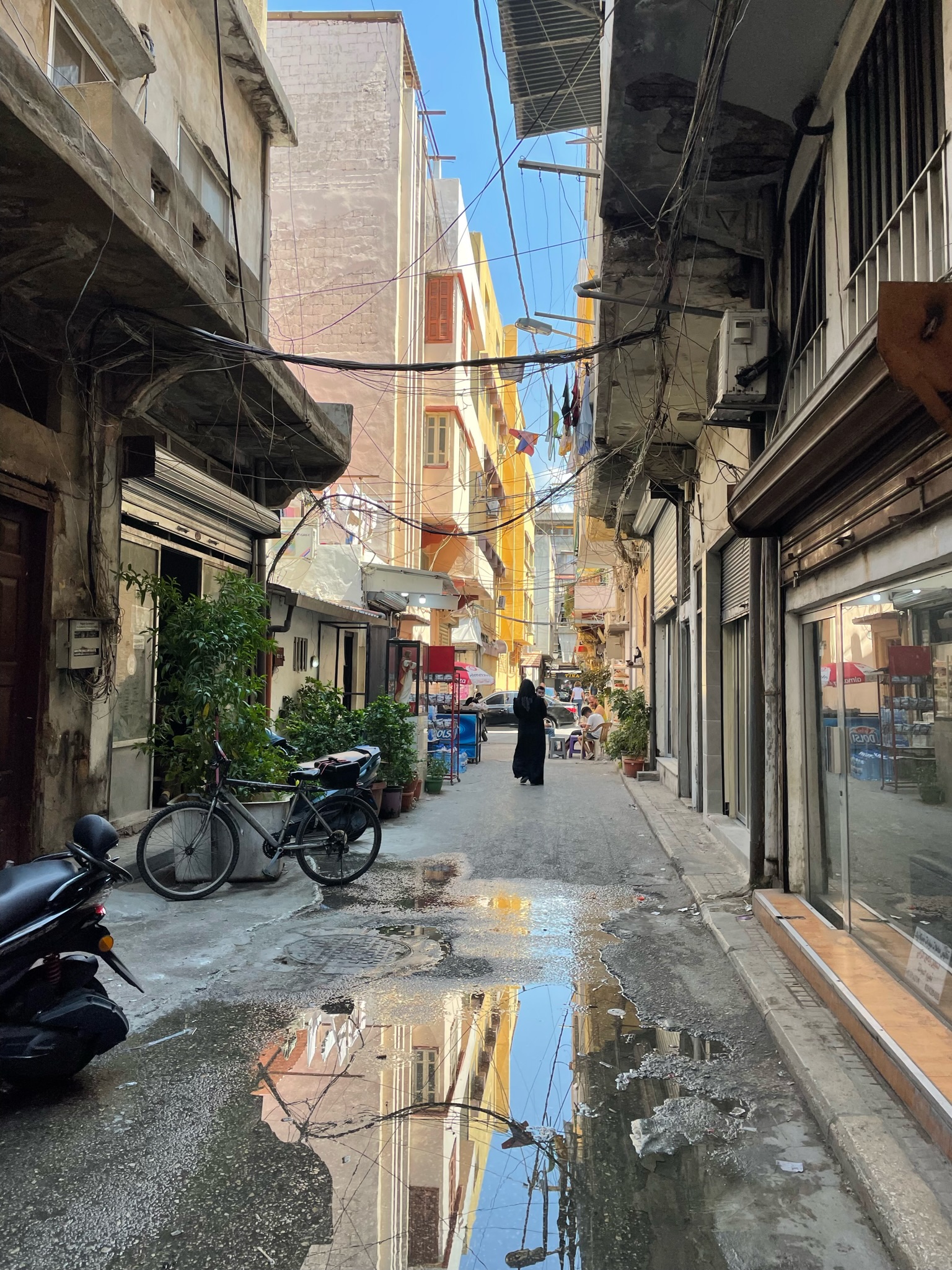“Shad tezh-var eh,” her voice betrays how hard it is to carry the now.
She speaks in village Armenian,
the cobbled tongue of those expelled to foreign lands.
Her words hang, weighty, like ripe pomegranates,
bittersweet with memories of home.
We met when I was asked to translate,
our Western dialects a sort of patois—
just close enough to make sense of her family’s needs,
They landed in Toronto on a -20°C February night,
frost etching patterns on windows like lacework on a bride’s veil.
Years later, we exchange sisterly voice messages on WhatsApp—
the chosen platform of the diaspora.
I inquire about her family in Lipanan.
“Hima khosétsa hédnérun,” she tells me of her recent phone call.
“I heard frightening loud booms in the background,
like thunder swallowing the sky.”
I try to offer comfort,
but only hollow platitudes and unanswered prayers spill out,
a torrent of words as useless as dust.
She says the sounds resurrect old fears.
from childhood in war-torn Beirut, air thick with debris.
Marriage and children in Aleppo, then fleeing Syria’s bombs,
lullabies drowned by sirens and explosions.
And then Canada—maple leaves,
the promise of peace,
though winter’s cold reminds us:
So much displacement in our cells since 1915.
And now this.
Those left behind endure fresh agonies.
Their burdens, already so heavy:
Family in Haleb rebuilding after the earthquake crumbled buildings,
rubble and despair settle like a shroud,
still under the cloud of an endless civil war.
In Bourj Hammoud, a young niece battles cancer—
what will happen to the hospitals in Lebanon?
To children already orphaned by poverty—no money for medicine or food.
“Manugner gan,” she agonizes.
“Nursing infants needing diapers. Now, no food to nourish them.”
They pray in the streets for the sky not to fall,
for homes not yet in ruin, walls still echoing with innocent laughter.
“We are living in the decisions of men,” I mutter.
I know it’s not completely true,
but I struggle to imagine mothers doing this to other mothers.
Yet, who mothered these men?
Every Armenian knows the pain inflicted by hatred.
We know the rulers will claim it’s justified
“For the safety of the nation-state.”
“The right to defend itself” is only granted to some.
Subjects, not citizens, on land we’ve inhabited for over 4,000 years.
A threat to an empire—our very existence, a revolution.
Our good neighbours, citizens of the state,
watched as we were forced from our homes—
marched to the desert, if we made it at all.
Good people, helpless, hungry, hopeless.
Did the sun scorch away their empathy?
Never again, we cried,
We promised!
And yet…
Now, all we can do is watch and listen.
This is hell, I am certain,
a purgatory of powerlessness.
Lord Byron said Armenian is the language of prayer.
May our mother’s tongues reach God’s ears.
Asdvadz g’aghachem.
Asdvadz doonereh heroo bahe.
Asdvadz doonernin bahe.
In the silence between destruction,
I hear the whisper of our ancestors,
their hopes carried on the wind,
a hymn for a future we still dare to dream.
#CeasefireNow
